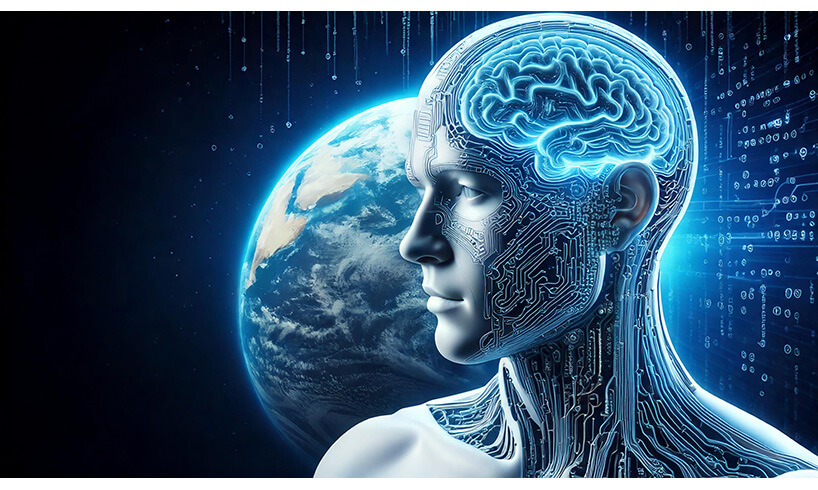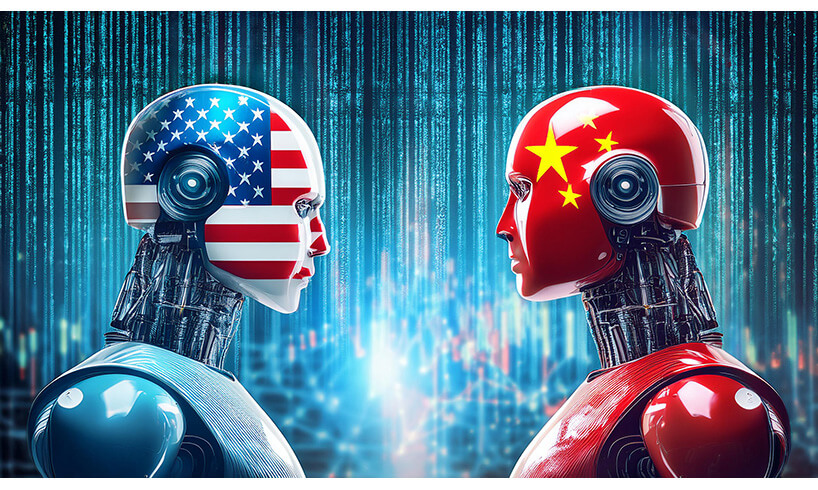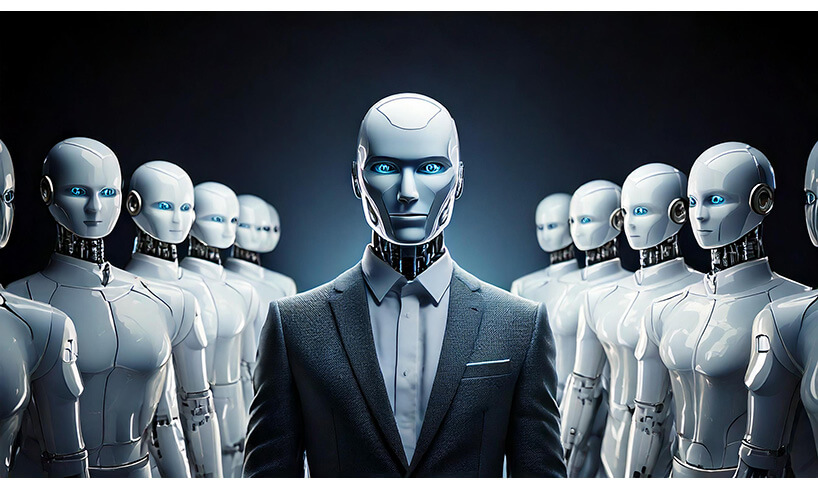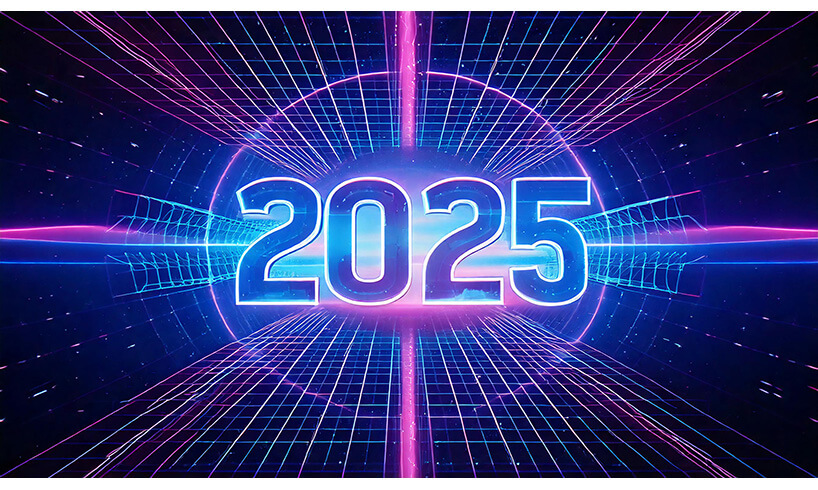



What is the Stargate Project?
The Stargate Project is a $500 billion investment, which is said to position the US as a leader in AI.
The Stargate Project is an initiative, designed to position the US as being a global leader in AI and innovation. The project was created in response to the rapid advancements in AI, especially in countries like China, and the EU. By funding ambitious and innovative projects like this, the government aims to gain a competitive advantage in a vast number of industries. It’s also an aim to bolster national security while improving economic output. This ensures that the future and the development of AI align with true American values, regarding ethical responsibility.
So, what are the goals for the Stargate Project? While one of the main goals would be to create a national and robust AI ecosystem, another is to try and facilitate collaboration across several different sectors. Initiatives like this are going to focus on software and hardware, but at the same time, they are going to create opportunities across numerous verticals. Encouraging the synergy of technology is huge, and this is a primary focus of the Stargate Project. Of course, collaborative frameworks like this are going to help unlock the true potential of AI, while safeguarding against the risks that are strongly associated with unaccountable or unregulated AI systems.
The Dawn of a New Era for AI
When you look at the Stargate Project as a whole, one thing is evident. Over the next couple of years, the government is going to be investing in tech, namely supercomputers. They want to make sure that they are equipped with next-generation hardware. Storage capabilities are also going to grow quite a lot. Infrastructures like this are designed to deploy and support even more AI models, with the option to scale as they evolve. This means that they can become more complex, with resources ready to allocate on demand. The Stargate Project is also going to support the creation of a better AI infrastructure. As tech develops, it’s safe to say that the power required to support them is going to become more demanding. With careful planning, however, the project could well set the standard for how AI can be both powerful and scalable, without compromising the environment.
Delving into the AI Revolution
The Stargate Project is going to help cultivate a whole new workforce. One that is capable of meeting the demands of the AI revolution, and that can support its growth moving forward. Several educational institutions are going to play a huge role in this effort as well. There are already several government grants that are going to help with this, and as time goes by, even more AI-focused academic programs are going to be created as a way to train new engineers across the country. The aim is also to create thinkers who can tackle several complex issues but in a more holistic way. Of course, as well as formal education, it seems that the Stargate Project is also going to provide several reskilling programs. This is a way to incorporate the existing workforce as we get ready for the upcoming significant transformation. This is going to help people transition into new roles, and it is also going to ensure that technological advancements, like what we can expect with AI, don’t lead to societal disruption or widespread unemployment.
The $500 Billion Investment
The $500 billion investment is going to take place over the next four years. It shows a strong commitment to the digital infrastructure required to support AI development as a whole. The amount is going to help support the digital infrastructure required to support the development of AI, and it is going to be distributed toward R&D as well. Ethical guidelines are going to be followed, and it is also a major focus to make sure that AI is going to evolve responsibly. With the Stargate Project funding going to be funneled into numerous areas, it seems that there is a lot of potential for numerous markets.
One of the biggest markets would be for AI and data centers. AI has to have specific hardware, and that is why the Stargate Project is going to invest quite heavily in next-generation processors and chips. AI-specific components are going to ensure faster data processing as well as less latency overall. This is going to pave the way for real-time applications across several sectors. In terms of data centers, they are going to be built to try and support the demand for AI processing power. There is going to be a big emphasis on scalability as well as energy efficiency. AI accelerators and chips that are designed to train new models are going to be a real game-changer for things like robotics and autonomous driving.
Advanced Frameworks
Advancement frameworks, alongside infrastructure, are also going to be a game-changer. Substantial funding is going to be allocated toward the development of AI software and frameworks. A framework like this is going to enable the training of AI models so that they can then perform complex tasks. This is going to take place across a wide range of industries. On top of this, it seems that entertainment stands to benefit. Simulators and model testing are going to be prioritized as well.
More of the budget for the Stargate Project is going to be put towards trying to create an ethical framework for AI responsibility. The project is going to support a framework that will help AI to advance without compromising the environment. Independent bodies are also going to be appointed to assess fairness, bias, and even accountability. Ethical considerations are also going to be implemented to ensure that AI systems are transparent and that they continue to be beneficial for society.
The Stargate Project and the Future of Chatbots
When you break down the fact that The Stargate Project is expected to spark several advancements in chatbot technology, it is evident that there is going to be a stronger foundation in things like AI capabilities and chatbots as a whole. One limitation in bots that offer online support chat for website use is the fact that they cannot maintain context when having a long conversation Most chatbots can manage short interactions but they find it hard to keep up when dealing with longer, more drawn-out conversations. They also struggle when the context of a conversation changes. If more powerful resources were put towards things like this, and if computational resources can be put towards NLP models then chatbots can then track and maintain context, even when working over longer periods. If you look at past interactions and the history of previous issues in regards to support then this would allow them to provide a way more personalized experience. On top of this, chatbots would be able to advance so that they can provide conversation at more than a surface level.
Natural Language Advancements
Chatbots are usually quite limited by their ability, and they can usually only respond to a basic query if it is in a predesigned format. This project hopes to change that by pushing forward advancements in deep learning models. The aim is to also make sure that nuanced language can be understood better, including slang. Natural language processing will also help chatbots to handle more sophisticated requests. It may be that they can make recommendations based on different cues or that they can even completely change their tone of voice depending on the person they are talking to. A healthcare chatbot that has been designed to handle a medical question might be able to discern whether someone needs urgent care right now or whether they need to have a follow-up.
Chatbots in the future, if supported by the advanced infrastructure offered by the Stargate Project, are going to integrate multimodal AI. This means that they can process and respond to input that might not be text-based. Chatbots are also going to become capable of understanding video, audio, images, or even physical gestures. This allows users to interact with AI systems in a way that is more natural and intuitive. If you look at online retail, then it may be that a user can upload a picture of what it is they are looking for. A chatbot can then find something that looks similar. Voice-activated chatbots may even be able to recognize certain changes in someone’s tone or even speech patterns, allowing them to be more responsive.
As chatbots as a whole become more integrated, some privacy concerns might be raised. The Stargate Project has a big focus on ethical AI, which ensures that chatbots do not store personal data without first getting consent. This helps to provide transparency into how data as a whole is used. It also protects against any possibility of manipulation or even harm, regarding bias or unfair systems.
Chatbots can also discuss their limitations, which helps to inform users. Potential like this just goes to show how initiatives like this help to shape the future of AI, as well as the way it is integrated into our lives. With $500 billion allocated over the next four years, it seems that the project is going to usher in an era of technological development, as well as societal well-being.








